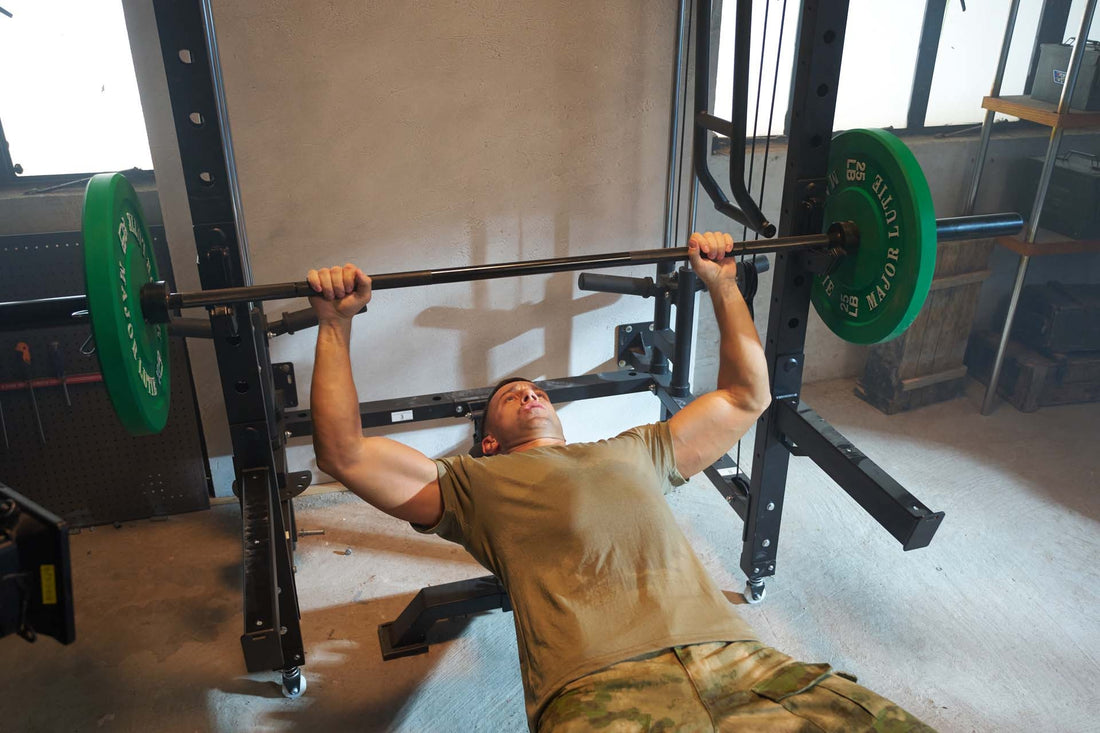
How to Get Stronger on Bench Press: Ultimate Guide for Maximum Strength
If you've been pushing those weights but still can't seem to break through your bench press plateau, you've landed in the right spot. This ultimate guide is designed to help you uncover the secrets to get stronger on bench press, allowing you to power through sticking points and achieve new personal bests.
Understanding the Basics
Before diving into how to get stronger on the bench press, it's crucial to understand the foundational principles that set you up for success. Bench pressing is not just about brute strength; it involves technique, consistency, and a well-rounded training program.
Proper Form and Technique
The bench press is a compound exercise that primarily targets the chest but also engages the shoulders, triceps, and even your core to some extent. Here are some key pointers for maintaining proper form:
- Grip: Your grip width should be such that your forearms are vertical when the bar is at your chest.
- Shoulder Blades: Retract and depress your shoulder blades before unracking the bar. This will provide a stable base and reduce the risk of shoulder injury.
- Foot Placement: Keep your feet planted on the floor to generate leg drive, which can help in lifting heavier weights.
- Bar Path: Lower the barbell to just below your nipple line and press it up in a slight J-curve rather than a straight line.
Training Principles to Maximize Your Bench Press
Improving your bench press is not just about lifting heavy; it's about smart, targeted training. Below are some principles to follow:
Progressive Overload
To get stronger, your muscles need to be consistently challenged. Progressive overload involves gradually increasing the weight, sets, or reps over time. This principle ensures that your body adapts and grows stronger.
Volume and Frequency
Volume refers to the total amount of work done, whereas frequency refers to how often you hit the bench press each week. Balance these two for optimal results. Some may find success with high-frequency programs that have multiple bench press days per week, while others might benefit from a higher volume per session but less frequent workouts.
Accessory Work
Accessory exercises like tricep dips, shoulder presses, and rows can help improve your bench press by strengthening muscles that support the lift. Include specific assistance exercises to address weak points.

Nutrition and Recovery
No strength training program will be effective without proper nutrition and recovery. Your muscles need the right nutrients to repair and grow stronger after each workout.
Protein Intake
Protein is crucial for muscle repair and growth. Aim to consume 1.6 to 2.2 grams of protein per kilogram of body weight every day.
Sleep
Quality sleep is essential for muscle recovery. Aim for at least 7-8 hours per night to ensure your body has enough time to recover and repair.
Advanced Techniques
For those who have been bench pressing for a while and are looking to break through plateaus, consider incorporating advanced techniques like:
Pause Reps
By pausing at the bottom of the lift, you eliminate the stretch reflex and force your muscles to work harder, thereby increasing strength.
Board Presses
This technique helps improve your lockout strength by limiting your range of motion, allowing you to overload the top portion of the lift.
Smith Machine
Using a Smith machine can help you focus on form and muscle contraction, as it stabilizes the bar for you. While it's crucial to also practice with free weights, the Smith machine can be a valuable tool for hypertrophy and practicing proper form.
Common Mistakes to Avoid
When working to get stronger on the bench press, make sure to avoid these common mistakes:
Improper Warm-Up
Failing to warm up can increase the risk of injury and reduce performance. Include dynamic stretches and lighter sets to prep your muscles.
Overtraining
More is not always better. Overtraining can lead to fatigue and injury. Ensure you allow adequate recovery time between bench press sessions.
Conclusion
Becoming stronger on the bench press requires a multifaceted approach, involving proper form, progressive overload, specialized training techniques, and adequate nutrition and recovery. Follow these guidelines, and you'll be well on your way to smashing your bench press goals.





















